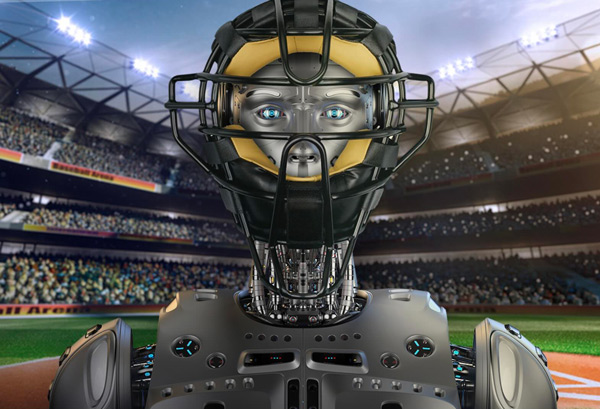Artificial Intelligence (AI) has been a topic of fascination and innovation for decades, particularly in SciFi, with rapid advancements over the past few years. From self-driving cars and voice-activated virtual assistants to medical diagnostics. I was a big fan of the TV show House but was always irked by the premise. Clearly, an AI would be a better diagnostician and likely less of a jerk.
Now, every time you search for something on the web or click over to Netflix to chill, you’re dealing with an AI. The technology is reshaping the world in profound ways.
Where are we now?
Deep Learning Dominates – Deep learning is essentially learning through examples. It’s a subset of machine learning and has taken center stage in AI research and development. Show an AI enough things we consider balls – soccer ball, tennis ball, rugby ball, and it will eventually be able to make its own, increasingly reliable decisions on footballs and koosh balls. This neural network-based approach has enabled significant breakthroughs in natural language processing, image recognition (face id for your phone and bad guy searches at airports), and reinforcement learning. The availability of massive datasets and powerful computing resources has fueled the growth of deep learning applications, making it a driving force behind AI’s rapid evolution.
Applications That Change Our World – AI has become pervasive. They are already better at flying aircraft smoothly and accurately, soon they’ll be better at making decisions. For example, recently GPS spoofing has become a big deal in aviation. Bad actors set up systems to make navigation systems think that they are the real satellites, not those pesky things up in orbit. Aircraft that get spoofed think that everything is okay until someone (Air Traffic Control, or a pilot) says “Hey, where are you going? We show you 20 miles inside Iran (true story ripped from the headlines).” The spoofers take over the aircraft’s systems to the point that aircraft can become convinced that they are somehow hovering stationary at 30,000 feet near Tel Aviv (another actual instance). This last example is almost laughable. Even your average pilot at Booger Airways (not a real airline) should know that they’re not hovering. Should. Enter human judgment. “Hey, it looks to me like we’re still moving, maybe the GPS is, I dunno, wrong?”
Spoofing will get better. Add more subtle communications jamming and some tired pilots, and we’ll see an airliner landing not just at the wrong airport, but in the wrong country.
Here’s an upside – onboard AIs will be able to detect and defeat or deflect intrusive attacks. Eventually.
Credit card companies use AI for fraud detection. “If Pat just used his card at the Kroger in Houston moments ago(normal behavior), it seems unlikely that he is using it now at a gas station in Ypsilanti, MI (new behavior). Let’s launch a fraud alert.”
Natural Language Processing is the ability to understand what we say and type – even when it’s near gibberish or full of emojis. Siri, Alexa, Chat GPT, and others have made great strides and some used to be able to offer great suggestions for hiding bodies. Not so much now. Dang filters. Current big issues are bias in both the language used, and in the models used to define context.
Safety and Transparency – There’s increasing (and justifiable) concerns about how AI will/is used and its potential for abuse. We’re already tracked and targeted online for shopping. Search for socks once, and you’re sock-spammed for months. As AI gets involved in more life-critical systems (self-driving cars, aircraft, ballistic missile launch and defense, etc.), people will want to know how they make their decisions. We want to know the calculus behind their solutions to the trolly problem. What do they prioritize? Youth and beauty, or aging SciFi authors who blog on the side?
I’m generally optimistic about the benefits of AI. If you give me a reliable self-driving car, I’ll be a happy guy. I also think there’s a great future in education. Teachers are grossly overburdened and have to: 1) Focus almost exclusively on prepping for the standardized tests and 2) Deal with widely varied ability and comprehension which frustrates those on both ends of the spectrum. This is one of the themes of Spark.
 I’m also ready for AIs in sports. There is no need for an inconsistent, fallible umpire to call balls and strikes. Time to move on.
I’m also ready for AIs in sports. There is no need for an inconsistent, fallible umpire to call balls and strikes. Time to move on.
The biggest opportunity, particularly for our aging population, is going to be healthcare. A few peripherals and we’ll have better access to better medical care and not have to be worried about doctors who don’t see sick patients.
With the current speed of advancement, this post will be out of date in a couple of years.



